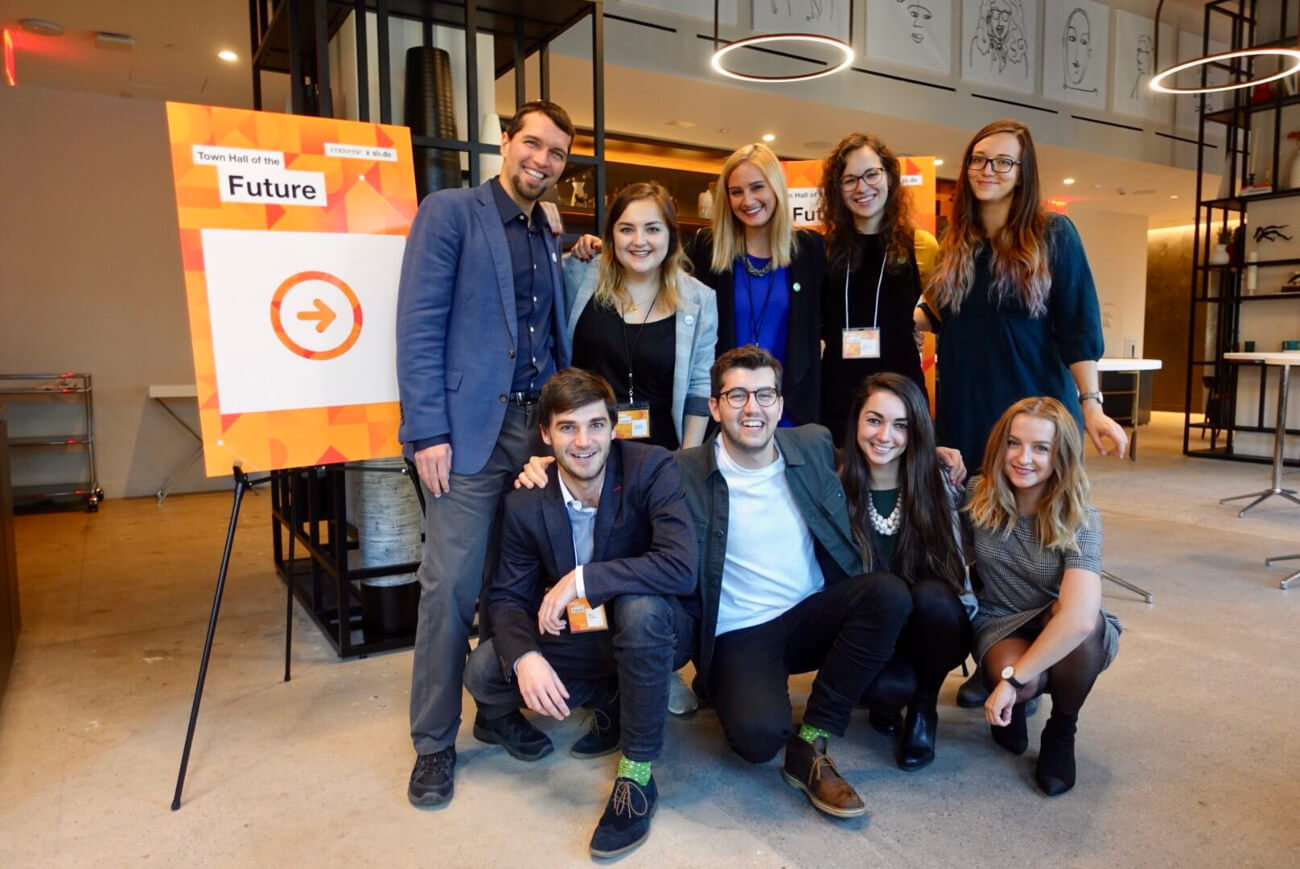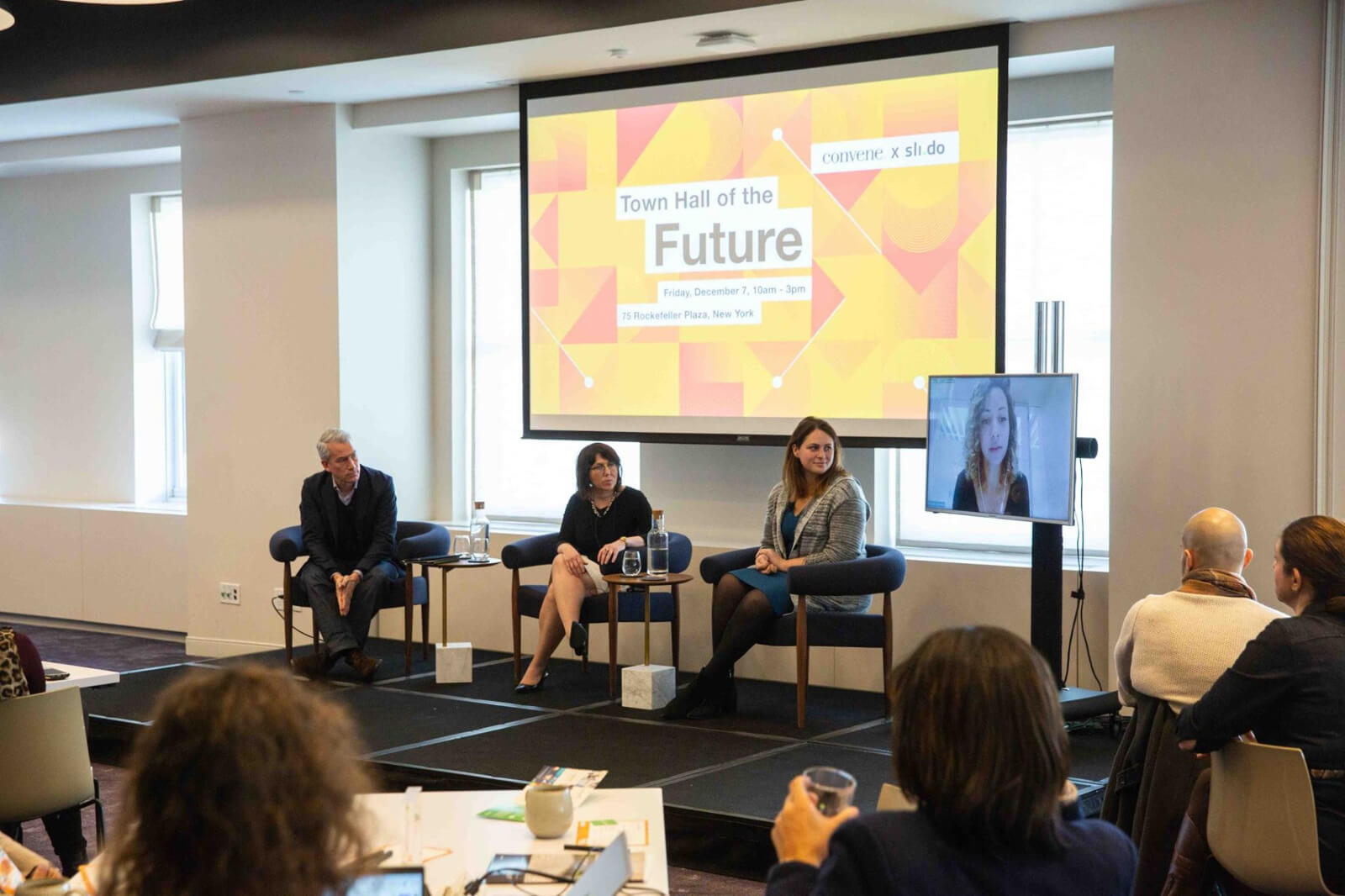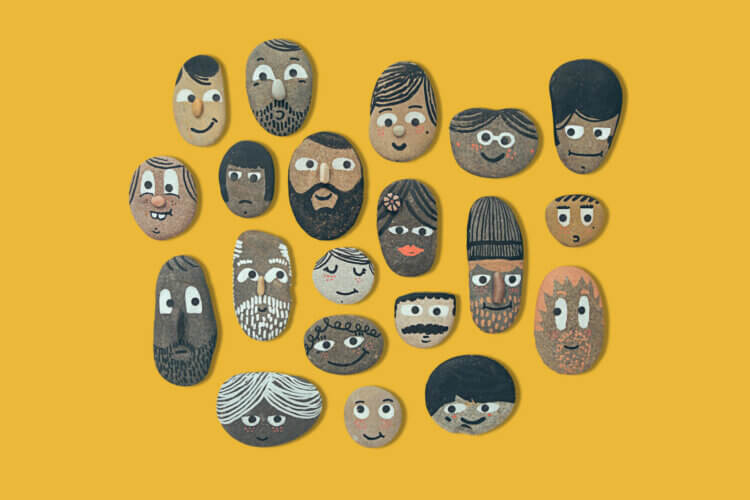Town hall meetings have become a regular fix in the calendar of many companies. We partnered up with our friends at Convene again to put together a forward-looking Town Hall of the Future.
Hosted in the incredible Convene space at 75 Rockefeller Plaza in New York, we were joined by over 120 internal communication and HR professionals.
Together with industry leaders from Slack, Zendesk, Zoom, Workplace by Facebook and others, we set out to explore what a town hall of the future will look like.
Here are some of our key lessons and learnings.
Town halls will be interactive and collaborative
One of the main goals of our event was for our attendees to take as much as possible out of it. To keep them engaged with the content throughout the event, we used Slido to capture their views and give them a chance to ask anything during the discussions.
Before sharing the lessons from the stage, we first wanted to know how they foresee the future of town halls.
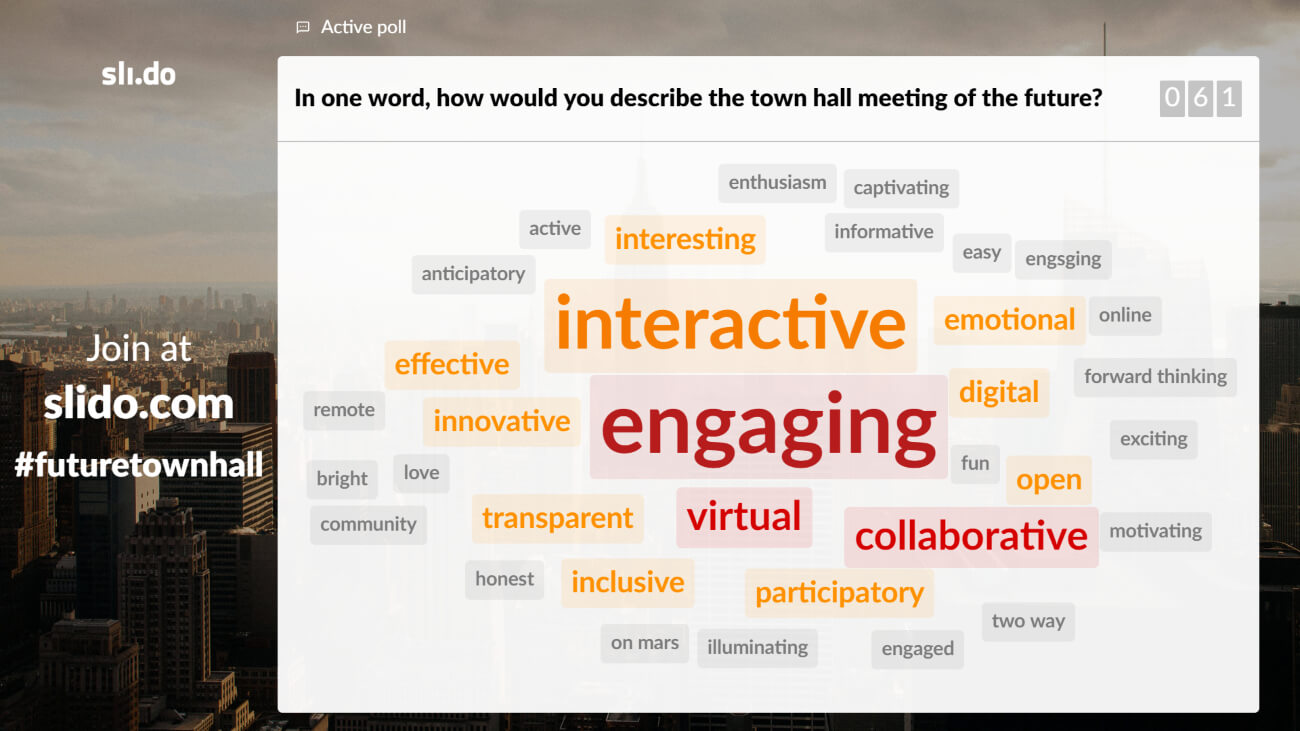
The word cloud poll that we ran revealed that their perceptions were aligned with ours – engaging, participatory, virtual and innovative are exactly the kind of town halls that we all would like to attend.
Let’s look at what our speakers had to share about getting there.
Listening to what’s on people’s minds
The event kicked off with the high-level perspective of a C-Suite panel. Chris Kelly, Co-Founder of Convene, and Peter Komornik, CEO of Slido, talked about the importance of all-hands meetings and what role they play in communication with their teams.
Chris began by illustrating the shift in employee expectations: “When you buy something through Amazon or when you book an Uber, you always have the ability to deliver real-time feedback with every single transaction. And the expectation for employees in the workforce today is the same thing – they expect to have a voice in your business.”
Following the mantra “employees are the company’s first customers,” town halls can be seen as a unique opportunity to have a direct, face-to-face conversation with the leaders, providing the employees with a means to express themselves.
Our CEO Peter elaborated on that line of thought: “To me, it’s one of the most important days in a month where the whole company meets and everyone gets a voice to ask their questions.”
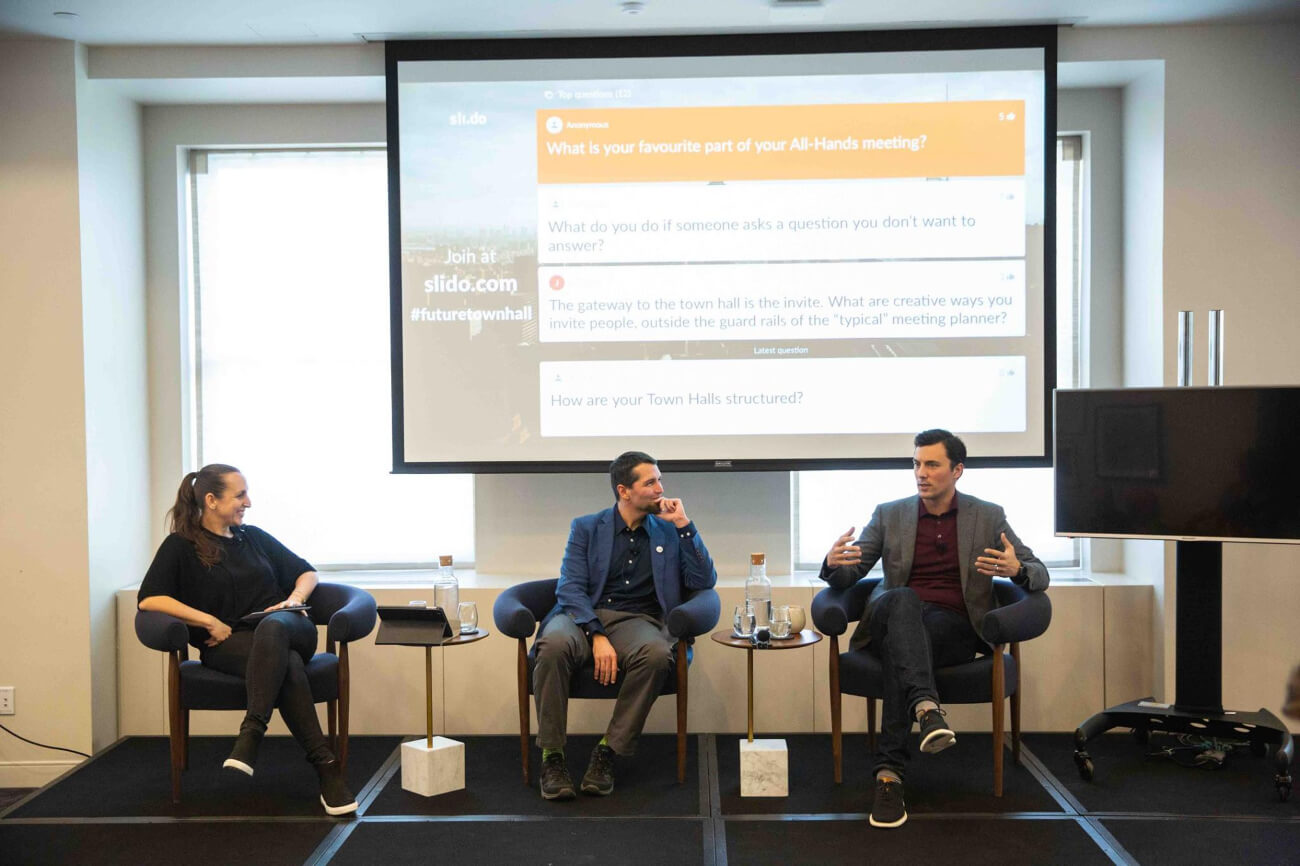
Good meeting structure is key
When asked about the structure, both leaders agreed that the town hall should review the key areas of the business and look at where the company is right now versus where it wants to go.
But it’s also about celebrating the people who made the success possible.
Whether it’s our silent hero activity, or Convene’s show of hands indicating how many people joined the company in any given year, it’s these moments when the company culture truly shows and the team morale is strengthened.
And finally, Peter and Chris circled back to the importance of having the Q&A section. They agreed that listening to and addressing people’s concerns in an open and honest way is the most crucial part of all-hands meetings.
As Chris pointed out, “It’s been said that the deepest compliment you can give somebody is deep listening.”
Trust starts with leadership and transparency
Moving from the C-Suite perspective, the second session looked at town halls from the internal communications standpoint and addressed the issue of building trust within the company.
Hannah Lawrence of Zendesk (who joined the panel remotely on Zoom) pointed out that it’s impossible to have trust without transparency. She explained that: “…in that regard, the internal communications is the function that drives transparency top down and makes sure that leadership also has the ability to see what’s going on within the rest of the organization.”
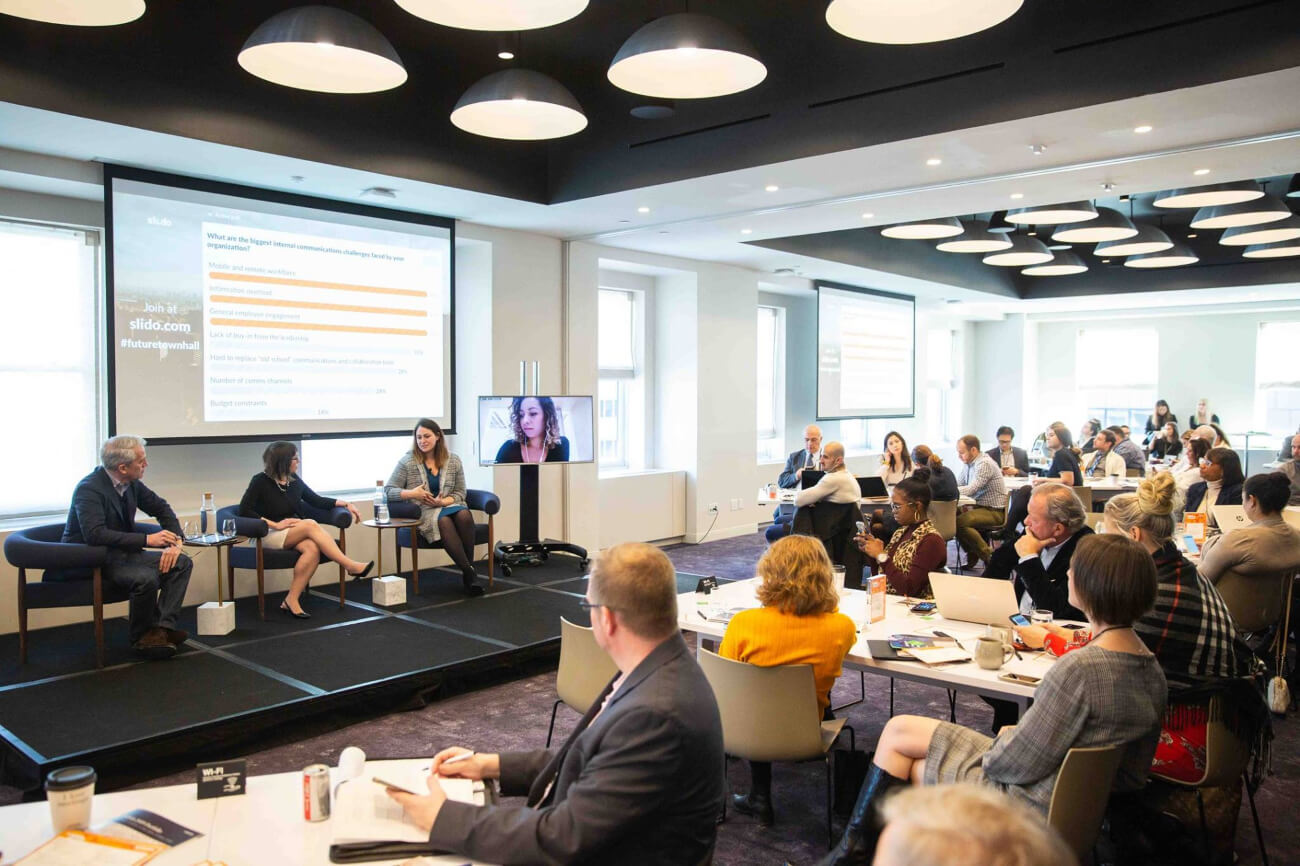
To stress the importance of strategic, transparent internal communication, Veronika Shiroka of Clinton Foundation added: “If you’re not communicating with your employees the way that they want to, they’ll go. Or they will come up with a story themselves.”
The most effective tactics deployed by our panelists to help the leaders embrace authenticity and openness were leadership coaching and change management.
“I think often leaders feel like they have to be someone else or they have to be more professional or more inspiring or whatever it is… [but] we don’t need you to be somebody else, we need you to be you,” explained Hannah.
Apart from showing authenticity and honesty, empathy was cited as another key element of communicating to build trust.
Veronika concluded that: “Being strategic, thoughtful, thinking about questions in advance and what the employees really want to know, that’s definitely not only going to keep your employees informed, but also build trust.”
Leveraging tech to engage remote employees
After discussing the strategic perspective, it was time to get down to some practical tips. As our live poll at the beginning of the session revealed, the majority of the people in the room had somewhere around 20-50% of employees working remotely at least once a week.
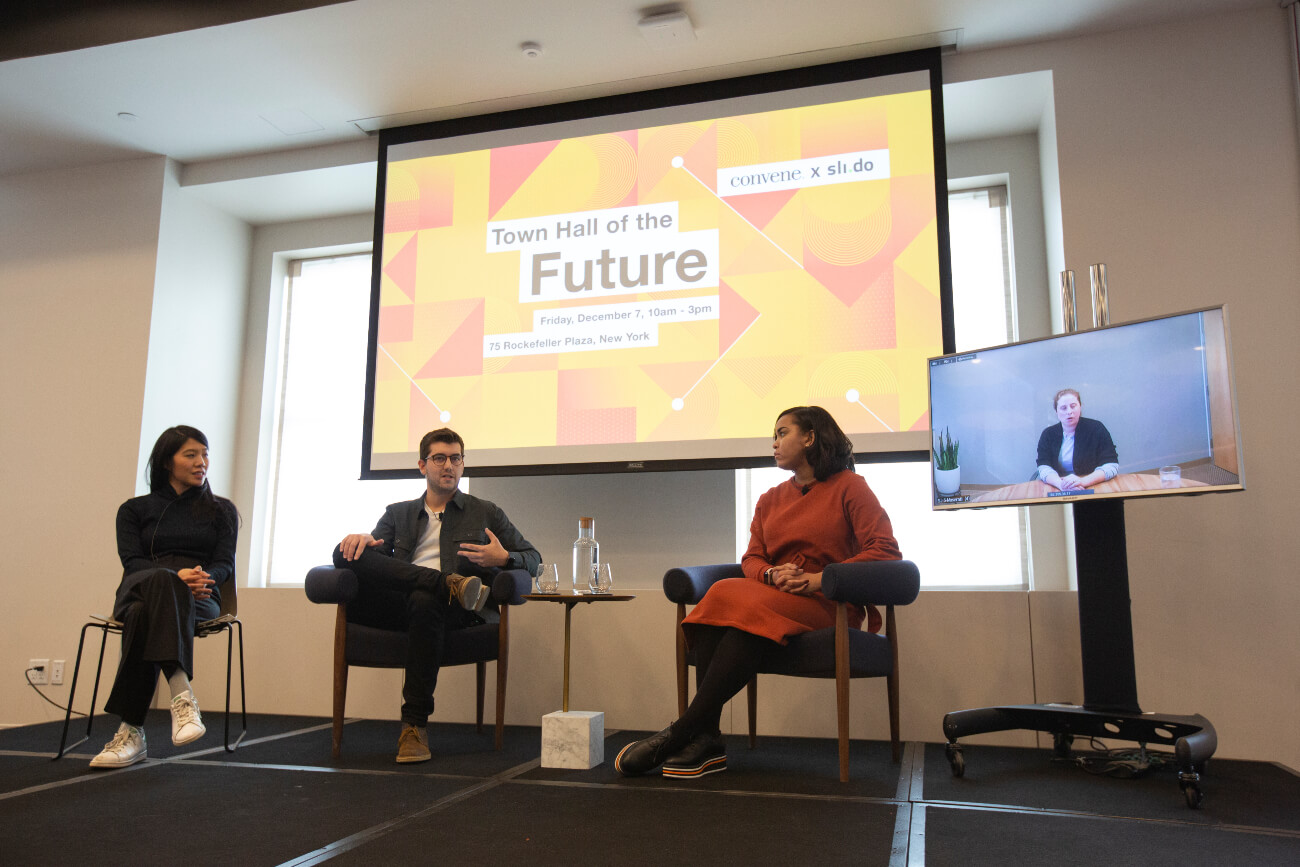
- Turn town halls into a tradition
When it comes to engaging remote workers, Diane Chang from Facebook found one tactic to be particularly effective: fixing the town hall meetings as a tradition within the company. Sticking to the same day, time, and format helps remote people remember that this is the time to reconnect with their team and get updated on everything that is happening in the company. “[At Facebook], every Friday afternoon everyone knows that Mark and Sheryl together with the whole leadership team will get in front of the entire company and answer questions that everyone has submitted in advance and they’ll take live questions from people in Menlo Park,” explained Diane. - Make it an ongoing conversation
The panelists agreed it’s important to make the Q&A available for a certain period of time. This is to ensure that the opportunity to ask and get an answer to one’s question is not exclusive to the people in the room. At Zoom and MassMutual, they start collecting questions two weeks prior to an all-hands meeting and make sure to follow up with unanswered questions after the meeting, e.g., via a Slack channel or an email. - Have a champion for the online audience
Participating in virtual meetings can be challenging, especially when it comes to asking questions. To help their online colleagues get their voice across, MassMutual introduced a dedicated facilitator, whose role is to monitor the questions coming from the remote employees. “Something we’ve been doing at town halls is having a representative for the folks not in the room to ask clarifying questions to make sure that they have a voice in the room,” said Payton Shubrick.
Wrapping up the event
As we wanted to make sure that our attendees left with some tangible ideas, we encouraged them to consolidate their learnings from the day. We asked them to write down what they’d like to start doing in 2019 as a result of their learnings and then share their notes with others in the group.
To wrap it up, the facilitator asked the attendees to submit their key takeaways to Slido and upvote the ones that resonated with them. These were displayed on large screens so that everyone could review other people’s responses.
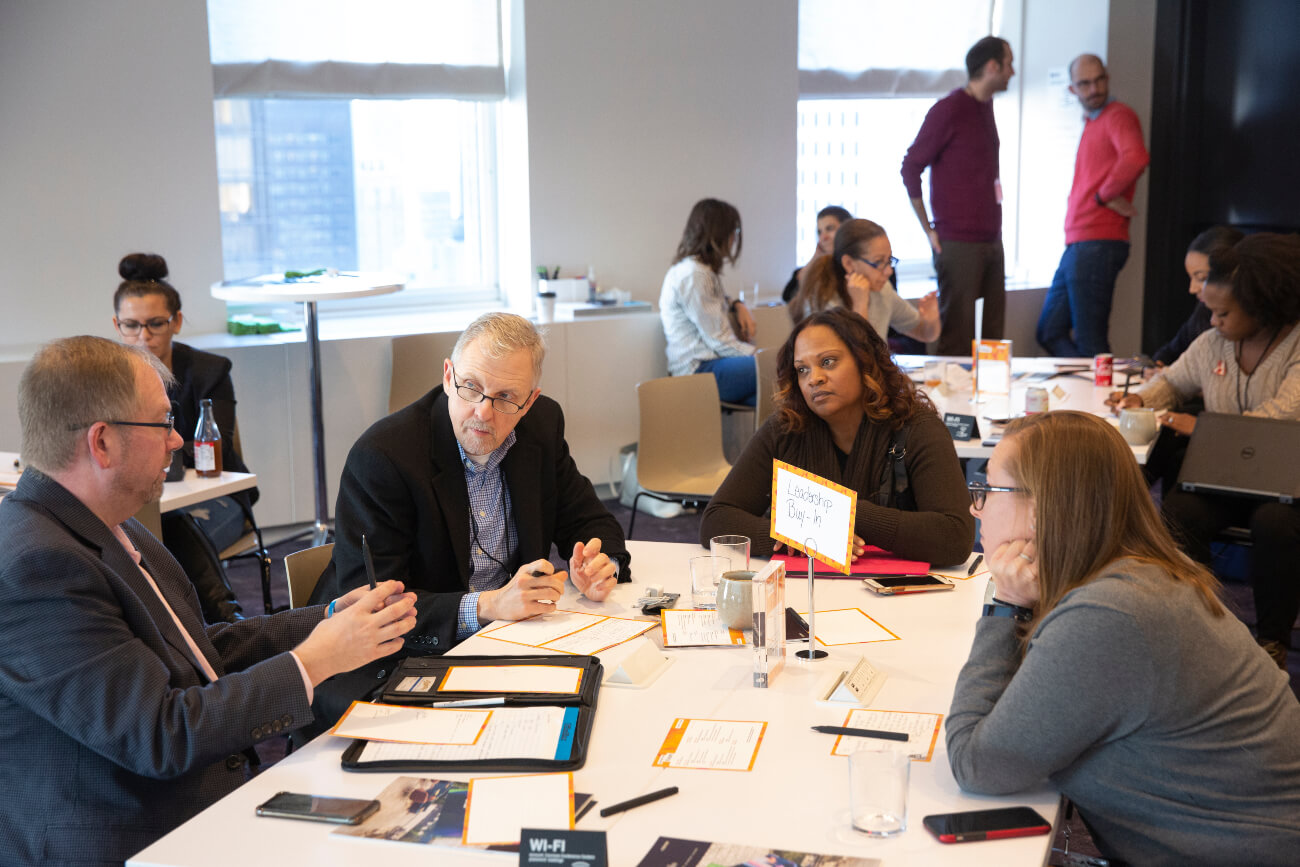
Thank you and see you next time
Creating an environment where an open conversation can take place is key to building a high-trust company culture. We are extremely grateful to our speakers for leading the charge and sharing their lessons with us. Thank you all for joining us to learn something new. We can’t wait to meet you at our next events and meetups and shape the future of meetings together.
